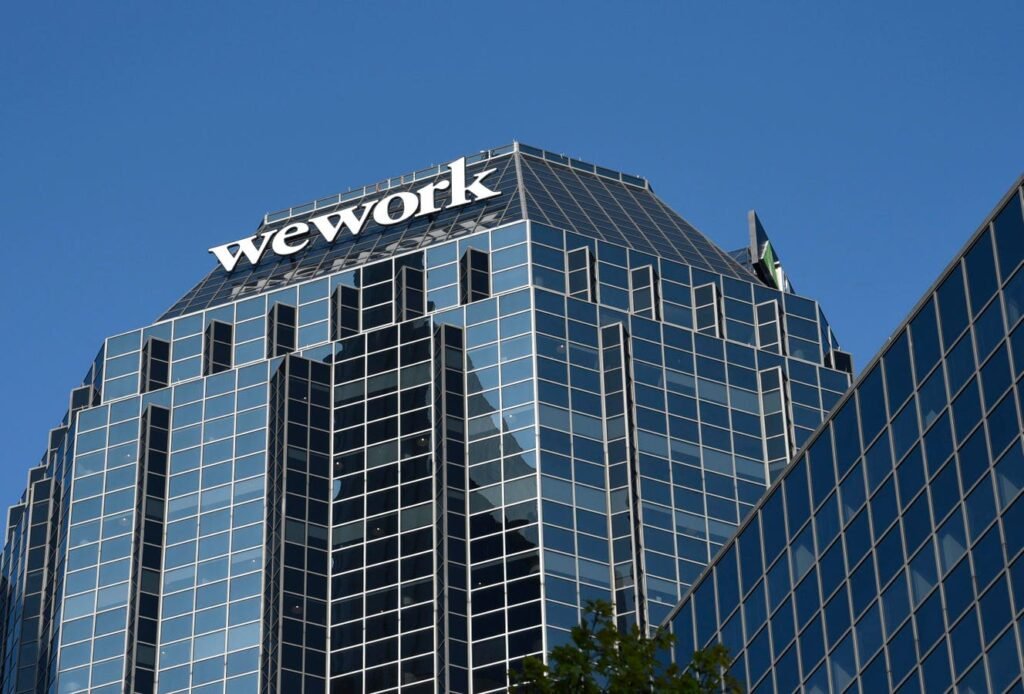NASHVILLE, TENNESSEE – SEPTEMBER 2, 2019: A skyscraper in Nashville, Tennessee, housing WeWork … [+]
WeWork seemed like the dream startup. At first glance.
Founder Adam Neumann’s company took a stifling sector—commercial property—and redesigned it for a new generation. He anticipated the desire for more collaborative work, especially among young creatives, and gave them what they wanted.
WeWork rented office space, turned it into a fun, lively co-working environment with free coffee and beer, and then rented it out to individuals and small businesses for a profit.
At least that was the plan.
It’s easy to see why so many investors backed this simple but ambitious startup. In fact, at its peak, WeWork was valued at $47 billion according to Forbes. However, he recently applied bankruptcy protection with its stock valuation being a fraction of 2019 levels.
For any startup entrepreneur, the first half of the story feels like the dream we all share about our startups, but there are also lessons to consider to help you avoid the nightmare the company faced in its final chapter.
How can entrepreneurs avoid WeWork’s pitfalls?
Bankruptcy document with wooden gavel, business concept.
WeWork grew at an amazing rate, but there were some issues that led to its downfall. Entrepreneurs can learn a lot about how to manage growth more sustainably by looking at some of the issues that concern WeWork.
Establish a real point of difference
Despite the hype surrounding WeWork’s disruptive presence, the bare bones of the business were surprisingly traditional. It wasn’t the tech titan that many praised it to be. Instead, it was a commercial real estate company in a world full of commercial real estate companies. It had its own style, of course, but one reason for its decline—even after returning to pre-pandemic capacity levels—was oversupply in the industry.
Think beyond how your branding and story differentiate you from your competitors. think about how your business model is different. Prospective investors need to know what makes your company unique and what makes it the best recipient of their capital.
Provide full transparency about what your business is and does, and why it is a competitive advantage. Many of WeWork’s early supporters were dazzled by the glitz of Silicon Valley, which distracted them from its less innovative structure.
Consider your risks
No entrepreneur is completely risk averse, but understanding what is a manageable amount of responsibility to take on is important. To lower the prices it paid landlords, WeWork typically signed 15-year leases. Since the model was then to be sublet on a short-term basis to its tenants, the company was constantly trying to reduce the rejection, with no assurance that it could meet its obligations.
When Covid-19 hit and demand for office space dropped, all WeWork could do was try to negotiate its way out of leases, or at least reduced rental terms. With $16 billion in rent obligations, according to the Capital Market Commissionit’s an important lesson to be aware of what level of risk you can reasonably afford to take.
Be practical and understand what sustainable development looks like
Making the right decisions for your business sometimes means compromise. It’s not practical to try to stretch beyond your means, so you need to be realistic about your investments.
Part of WeWork’s performance has included scooping up real estate in the most expensive areas of the world’s most expensive cities. While this seemed impressive to the industry and customers, it was not a sustainable model.
As frustrating as it can be to volunteer your time, plan for smaller, more achievable steps to keep the momentum going without taking on more than is feasible for your growing business.
Be prepared to spin
WeWork had no room for error. it had no plan B. It was a company that exploded and expanded when money was cheap and demand was high. However, a pandemic where workers were sent home and forced to keep a distance of two meters from each other, plus the resulting inflation and skyrocketing interest rates, defeated this model.
The problem was that there was no other direction open to WeWork. She could only plow ahead in the same way, struggling to service her debts.
Flexibility is key for an entrepreneur because the business landscape is always changing. Consider your options and what would happen if it gets harder to borrow or if trends reverse. Do you have the ability to change direction at short notice? If not, consider your plans B and C at the earliest opportunity.
The takeaway from small business owners should be that there needs to be a balance between rapid growth and expansion and equitable planning. There has to be something to fall back on when times are tough. Unfortunately, WeWork didn’t have that luxury.
